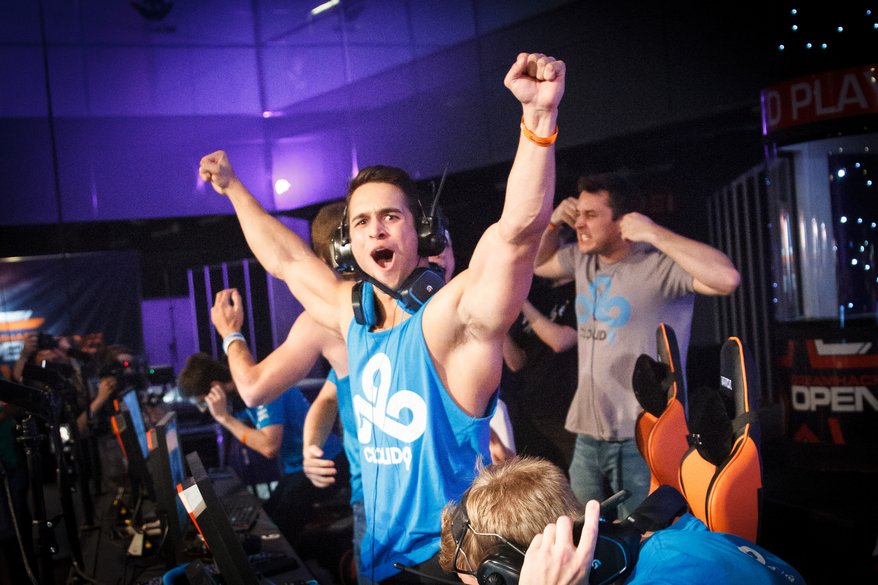There’s yet another new eSports league focusing on Valve’s Counter-Strike: Global Offensive (CS:GO). This one, the Professional ESports Association (PEA), is the only one completely owned and operated by CS:GO teams and players, according to PEA commissioner Jason Katz. The founding PEA team franchises include Team Solomid (TSM), Cloud9, Team Liquid, Counter Logic Gaming (CLG), Immortals, NRG eSports and compLexity Gaming.
“This represents an evolution of eSports to the major traditional sports league model like the NBA and NHL use,” Katz told [a]listdaily. “Historically, only third-party independent organizers or publishers have run leagues. This will allow us to finally build a stable, healthy, long-term environment for the players, the community, the media and the sponsors.”
The PEA will kick off its inaugural CS:GO season in early January 2017. Twice-weekly matches will be streamed live during the first 10-week season. Teams will compete for a prize pool of at least $1 million for the first year and $500,000 for Season 1. Furthermore, the league is completely funded by the team owners. Players and owners will receive an equal 50 percent share of profits and each caster will receive a share equal to a player. The PEA will also provide a suite of financial benefits and services to the players, including retirement and investment planning, health insurance and more.
Katz believes that the players, because they are also in a position to benefit from profits, will be more motivated to produce content and drive audiences to digital and television broadcasts to support the league. That’s good news for sponsors of all kinds. “We’ll continue to see non-endemic sponsors move aggressively into this space,” Katz said. “There’s no reason for eSports to be dominated by endemics. Just as in days past of traditional sports, manufactures of sporting equipment were the first sponsors. But today, mainstream sports are a very broad marketing channel to reach males in general. And today, eSports is a broad marketing channel to reach young adult males with disposable income.”
ESports are an important way for companies to market messages, Katz explained, since there are so few marketing platforms that hold the attention of young males in a place where they’re willing to be exposed to and receive marketing messages. “ESports is pure and simply the best individual platform for any marketing service,” he said.
Katz came on board six months ago, long after the conversations for the league first began, and said that a lot of key things are still being worked out. Scheduling will happen in collaboration with the players, and the league will come up with a schedule where their total work commitment is comfortable. The goal is to have events around the other established league schedules, so teams can compete across multiple leagues.
And the PEA will also discuss where events will take place, especially as more CS:GO competitions are held in traditional sports arenas. “Arenas play a growing role and that type of live engagement with live audiences is something that makes the experience communal and special in a way that can’t be easily replaced,” Katz said.
The PEA has also started broadcast conversations. Katz said since eSports lives online for the most part, the league’s broadcast arrangements will reflect that. With ESL already doing random drug tests for CS:GO, Katz said drug testing will be addressed and resolved through discussions with players and team owners. The sale of in-game stickers, another staple for other CS:GO leagues and events, will also be discussed.
“We’re committed to giving players 50 percent of all profits and involve them as closely as they want to be involved in the operational decision-making,” Katz said. “That’s in the best interest of the teams, the players and the community as a whole.”
Katz also explained eSports leagues are a combination of operational activities and a web of legal relationships. His background as an entertainment lawyer and a game marketing professional led him to work with DirecTV on the Championship Gaming Series and later with Riot Games in building the architecture of the League of Legends Championship Series (LCS). “I have experience on the legal side, the marketing side and the operational side of eSports and those are the fundamental cornerstones for a league,” he said.
When it comes to his role as the commissioner, he said his goal is to be an impartial arbiter of any conflicts that need to be resolved and a clear-eyed strategist in terms of making sure that the team organizations and players are in a position to take advantage of opportunities. “ESports is a highly fragmented and quite volatile landscape with a lot of tectonic shifts happening at the same time,” Katz said. “It’s a complicated ecosystem, and half of my time and energy I expect to spend navigating through that ecosystem and making sure we’re protected against risks and taking advantage of opportunities.”
